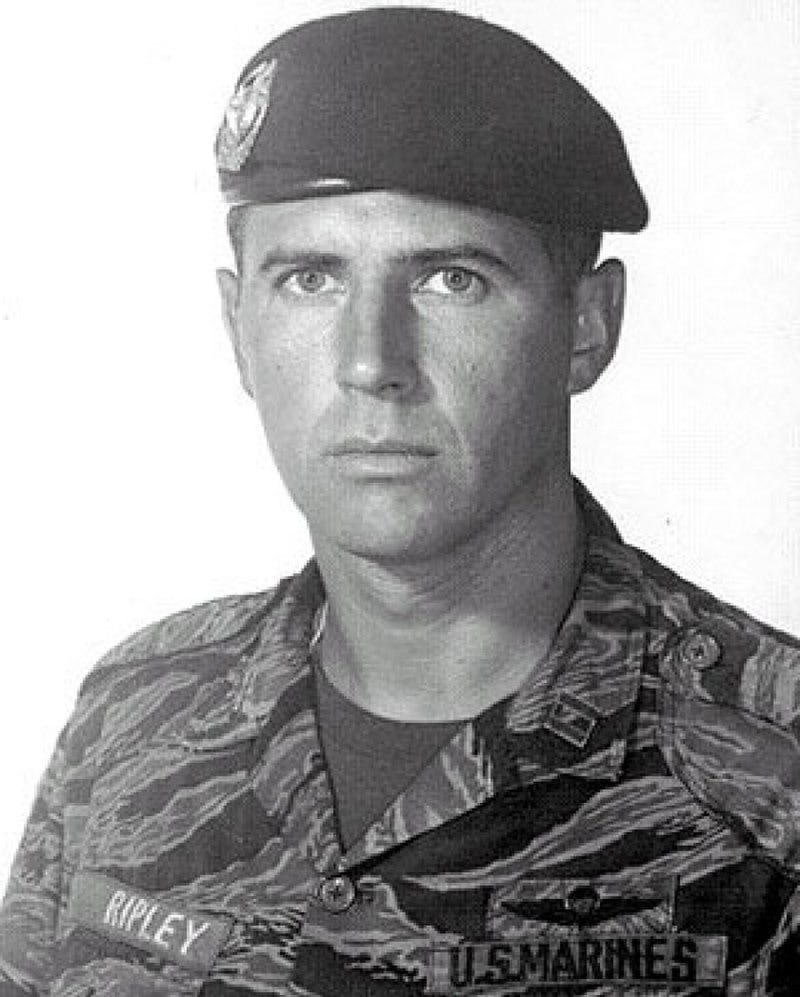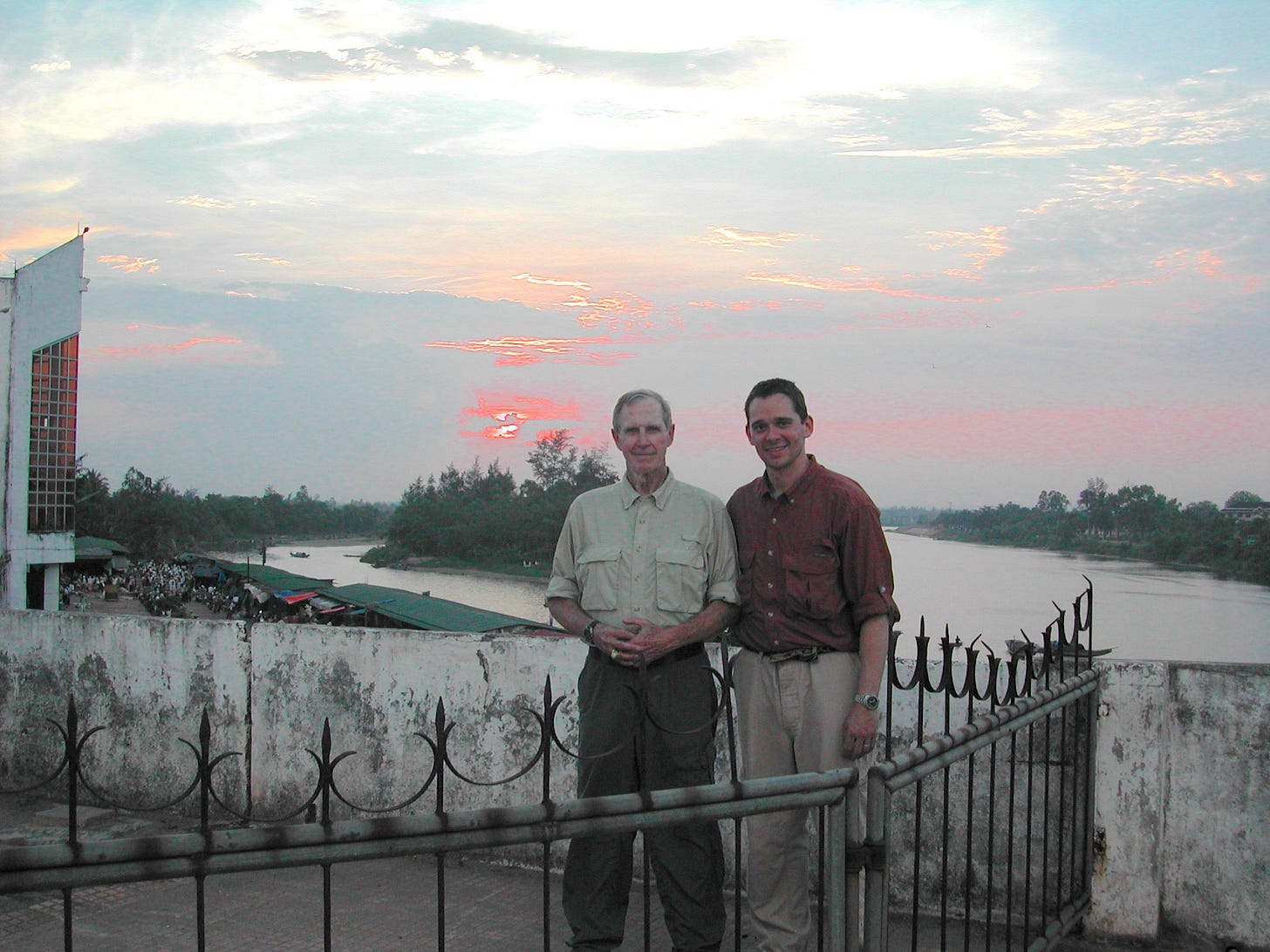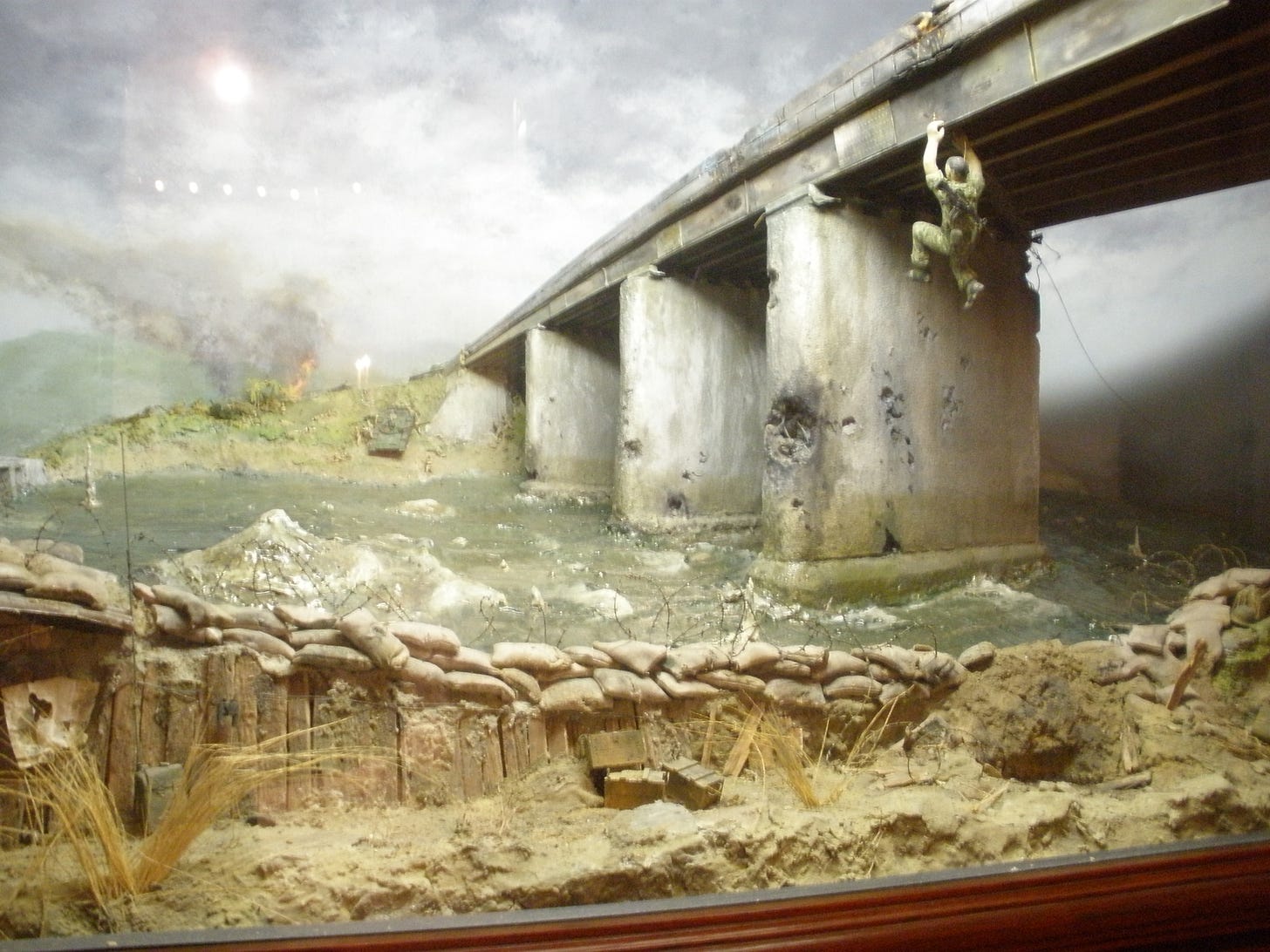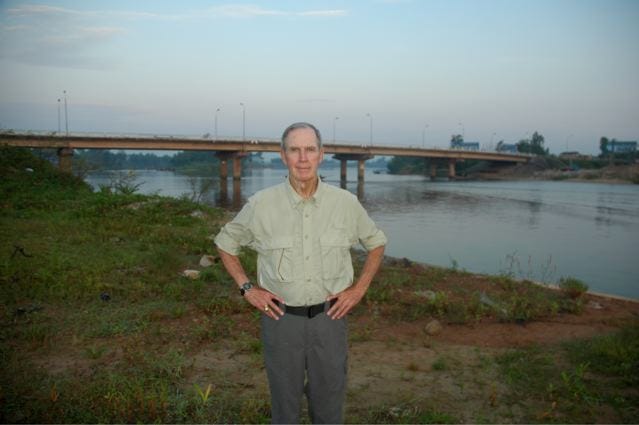What was the most difficult decision you made in your 20s? When you were 25 what was the greatest challenge you faced?
As Russian forces assaulted the Ukraine last week a 25 year old Ukrainian named Vitaliy Skakun Volodymyrovych made a decision it is impossible for most of us to consider. It isn’t that we can’t imagine being where he was. What you don’t know, unless you have been there, is how you would have acted. What would I have done? What could I have done?
Vitalii was a combat engineer in the Ukrainian Marines. Simply put, combat engineers do two primary jobs. One, they build things. Two, they destroy things. On his last day Vitalii destroyed so others might build.


As Russian forces closed in his unit was tasked with destroying a bridge. Placing explosives Vitalii came to the realization that withdrawing and then destroying the Henichesky Bridge remotely would risk allowing the Russian to seize the crossing. After placing explosives on the bridge he made the choice, the decision, to detonate the charges before leaving. He relayed his intentions to his unit and destroyed the bridge.
He was killed as a result.
A Ukrainian military official said this of Vitalii, "Our brother was killed. His heroic act significantly slowed down the push of the enemy, allowing the unit to relocate and organize defense."


River crossings and bridges hold a special place in military history. Operation Market Garden, Pegasus Bridge, Burnside Bridge, the Burma-Siam Railway bridges, the Battle of Stamford Bridge, the list can go on. In Instruction for His Generals Frederick the Great says, “The defense of a river crossing is the worst of all assignments…” As I read news of Vitalli’s heroics and death I wondered about his last moments. This took me back, to another Marine, an American Marine. To another bridge, in another war.
Dong Ha is a small coastal town in Central Vietnam. During the Vietnam War it was the northernmost town in South Vietnam and as a result strategically important. As American forces left Vietnam in the early 1970s the US presence there reverted, in part, to advisory. Among the advisors John Ripley, then a United States Marine Corps Captain. Ripley was stationed in Dong Ha in 1972 when North Vietnamese forces made an assault designed to end the war and unify Vietnam.
Known as the Easter Offensive, North Vietnamese tanks and troops pushed south. But they needed to take a river in Dong Ha. More accurately they needed to take a bridge across the river. As dozens of tanks and as many as 20,000 North Vietnamese soldiers pressed the attack Ripley was tasked with seeing the bridge destroyed.
I traveled to Dong Ha with John in 2006 to work on a television program about the battle. We stood on the bank of the river as he remembered that day. For roughly three hours he hung from the bridge, moving back and forth, hand over hand, placing approximately 500 pounds of explosives.
I vividly recall John talking about being under fire. Specially how enemy tanks on the far side of the river couldn’t lower their guns enough to fire directly at him. Others, there that day, were sure he would be killed. In the end the bridge was destroyed and the assault south thwarted.
After the television work was done John walked out onto the new bridge and paused. Placing ceremonial coins on the bridge he vanished into his own mind as he paid tribute to those who did not live.
But why do it, or more specifically, how do you summon the courage to take on a task that should end your life. I rewatched the program looking for clues about what Ripely and thus Vitalii might have been thinking.
Toward the end of the show Ripley says this, “The bridge was there, the enemy was there, and I was there. Very simple. I was obligated to do what I did.”
Obligation. I believe Vitalii was driven to act by obligation to his country, his comrades in arms, his family. He did, so that others might live. That sliver of understanding only fuels my awe for his bravery.
To hear more about John Ripley you can watch the show here.
Author’s Note: Over the course of my journalism and television career I’ve traveled the world to document individual actions during warfare. I’ve met and interviewed in some capacity 100s of veterans, the actual number might be in the 1000s. This is an ongoing series to memorialize my experience and further record remarkable acts and attitudes the worst of humanity can inspire.







